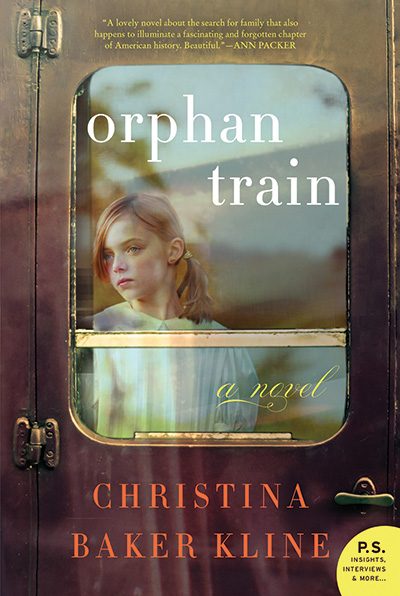
In this gripping tale of two women, we follow the strikingly similar lives of an orphan in the Depression-era Midwest and a foster child in present-day Maine.
It’s largely unknown that, from 1854 to 1929, forsaken children were collected off the streets of industrial cities on the East Coast and sent to the prairies of the Midwest on so-called orphan trains. It seemed like a sensible solution: The overcrowded and dirty cities had a constant influx of immigrants, while farming towns in the Midwest seemed desperate for larger families. But rather than finding solace with new, loving parents, most of these orphans were treated as an extra pair of hands and yet another mouth to feed.
Orphan Train (William Morrow), the fifth novel by Montclair resident Christina Baker Kline, follows one of these orphans from the streets of New York City to a barren town in Minnesota. Her unsightly red hair and difficult Irish name, Niamh, make her one of the last children chosen from the train. She finds herself kicked out of, or running away from, unwelcoming and miserable households bearing the brunt of the Great Depression. From providing child labor for a struggling seamstress to eating squirrels and sleeping on the floor during harsh winters, it seems Niamh will never recover from her abandonment.
In less compelling alternating chapters, Kline flashes forward to 2012 Maine and introduces us to Molly Ayer, a Native American foster child whose Goth wardrobe and quiet, rebellious personality has created a divide with her current caretakers. She meets an elderly woman named Vivian during a community service project, and the two women slowly begin to bond and discover shared experiences of alienation, neglect, and the possibility of new beginnings.
